Busted! On patrol with the Swiss ‘rubbish police’
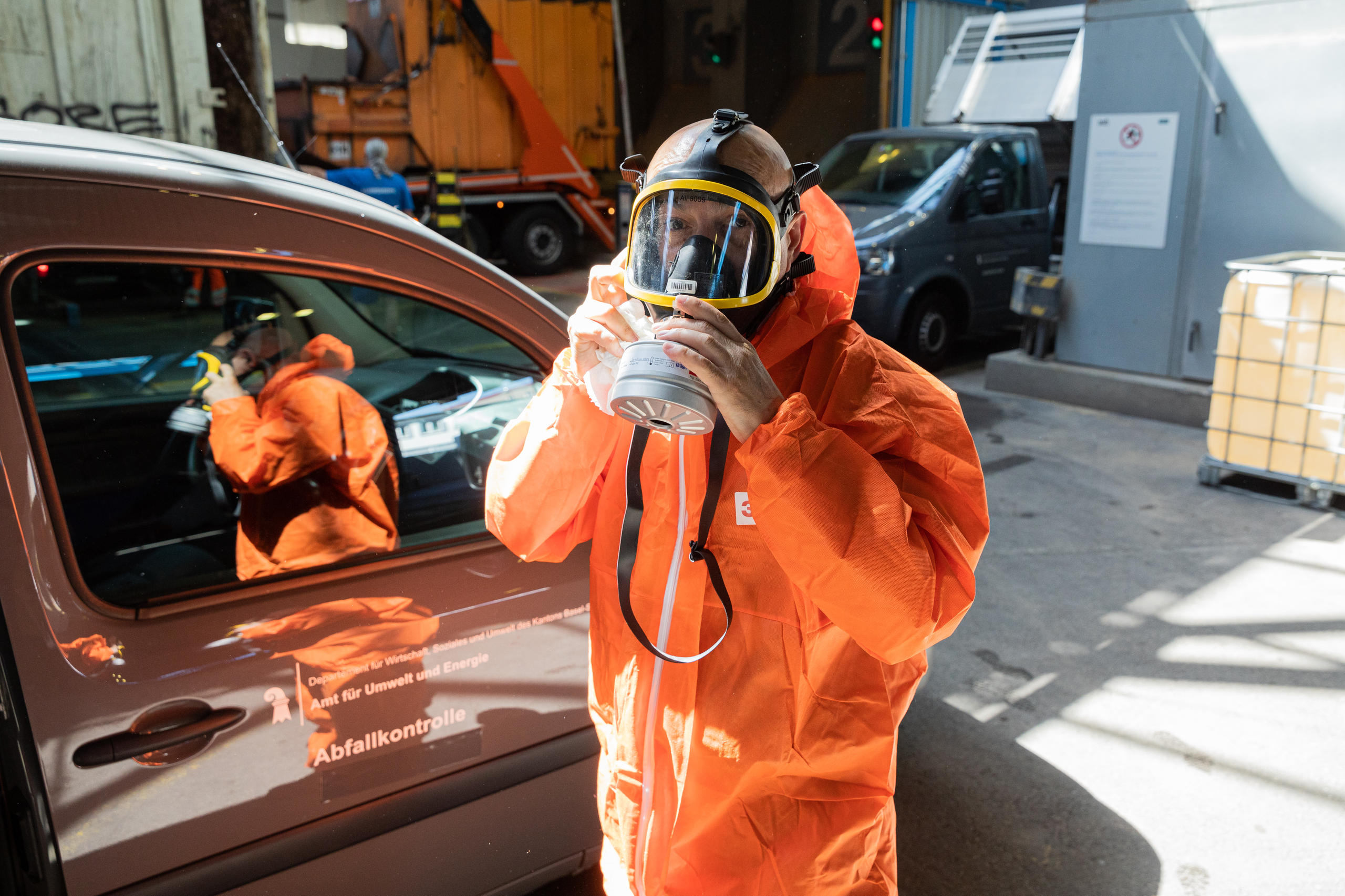
Across Swiss cities rubbish inspectors are cracking down on illegal waste disposal. It’s a thankless job. We join Ali Suvan on his rubbish inspection tour of Basel.
“This is a clean city,” says Ali Suvan as he negotiates his truck through the narrow streets of Basel. Suvan should know: his job is to pay close attention to rubbish.
A rusty old washing machine idling by the roadside is an invitation for people to dump more rubbish there. Hidden alleyways are favourite dumping spots too. People are more likely to dispose of their rubbish illegally in city centres, where they remain anonymous, than in suburbia, where the Smiths know exactly what the Jones are doing.
“Construction sites are also an attractive place to dispose of litter,” says Suvan.
It’s Wednesday morning in Basel. Suvan checks on a woman who reportedly hurls her rubbish from her balcony. Today there is no trash lying around. Suvan rings her doorbell. No one answers – something Suvan experiences often.
He considers his work worthwhile all the same. It is not about solving every case. Later that day, his colleague catches a woman in the act as she hurls a paper bag full of used nappies into a public rubbish bin.
Suvan is one of four municipal rubbish inspectors, all of them men. The work of these “waste detectives”, as they are known, is both challenging and thankless. They go on patrol, issue fines, investigate illegal rubbish disposals, promote recycling and proper waste management among the population, and advise property managers on how to deal with all the rubbish.
It’s almost impossible to abide by the rules all the time. Even Suvan admits that he has on occasion incorrectly disposed of rubbish.
“People should know that we exist and that we’re checking on them,” he says. But the rubbish inspectors are not passing moral judgement on those who break rubbish disposal regulations.
Strict waste management system
If a person throws a cigarette butt in front of the rubbish police, they can’t really deny what they have done.
“But they often say they’ve never done it before,” says Suvan. The offenders still have to pay the fine for littering, which is CHF100 ($103).
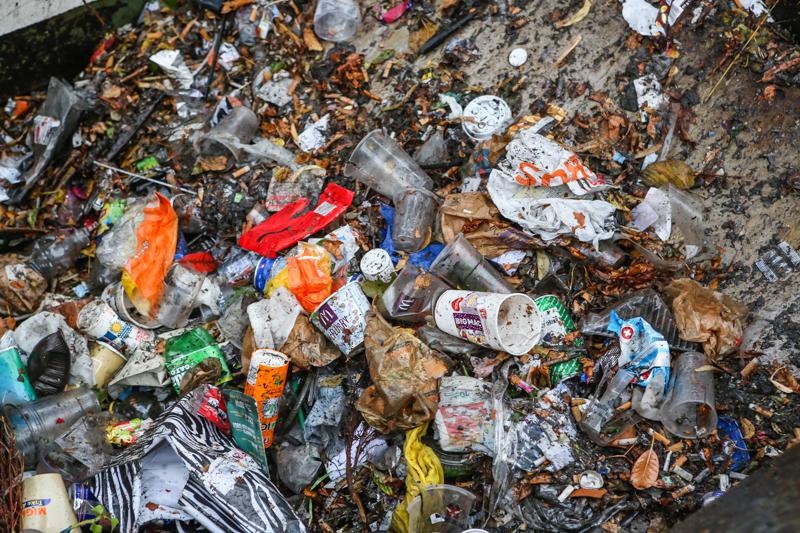
More
Caring for the city: street sweepers at work
The waste management system is strict across Switzerland. Basel is no exception. Every household must use municipality-issued blue bin bags, which cost CHF2.30 each. Black bags are prohibited, and if the inspectors find the identity of the culprit, they will slap a CHF200 fine on them.
“Everyone can afford the blue bags,” says Suvan. Rubbish is collected early morning twice a week, and the blue bin bags must not be put out before 7pm the previous evening. If the rubbish inspectors find bags out on the streets earlier than 7pm, they will issue a fine. This requires the inspectors to sometimes snoop in the rubbish bag to find evidence of the culprit’s identity.
It is also prohibited to throw glass and aluminium in public recycling containers on Sundays. A few years ago, the story of a German woman in Zurich who was fined for doing exactly that made international news headlines.
More
For those who have not lived in Switzerland for long, the strict waste management system can seem outrageously pernickety and difficult to follow, which could be another hurdle in the integration process. The rubbish police are portrayed as the epitome of Swiss pettiness. Swiss public television, SRF, even produced a satirical web series poking fun at the profession. Yet the rubbish police are not a Swiss invention – they exist in countries such as France and Canada.
“We don’t hand out roses,” says Suvan. “I totally understand that people get upset at first.” When he issues a fine, Suvan hears a lot of abuse, followed by some insight. The rubbish police depend on the public’s cooperation. They are not allowed to arrest anyone. If the situation becomes tricky, they can call the police, but this rarely happens.
Suvan and his co-worker once caught a man who was about to dump a big wooden board into a public rubbish bin. The offender said he was unaware that this was illegal. The rubbish police did not believe him and issued a fine of CHF100. Dumping an old mattress by the roadside is even more expensive and, if caught, the offender has to cough up CHF200.
High recycling rates
Asked if they supported the idea of employing rubbish inspectors in all cities where illegal dumping is rife, officials at the Basel Office for Environment and Energy gave a vague reply: “At the end of the day, hiring rubbish inspectors is a political issue.”
Basel introduced rubbish control around ten years ago, following a political process set in motion by a demand from the conservative right-wing Swiss People’s Party’s for a “mobile waste police”. Basel’s municipal government is now re-examining its policy of how to keep the city clean. It is difficult to say how much the rubbish inspectors contribute to the city’s cleanliness. How clean a city is may well be a question of individual perception.
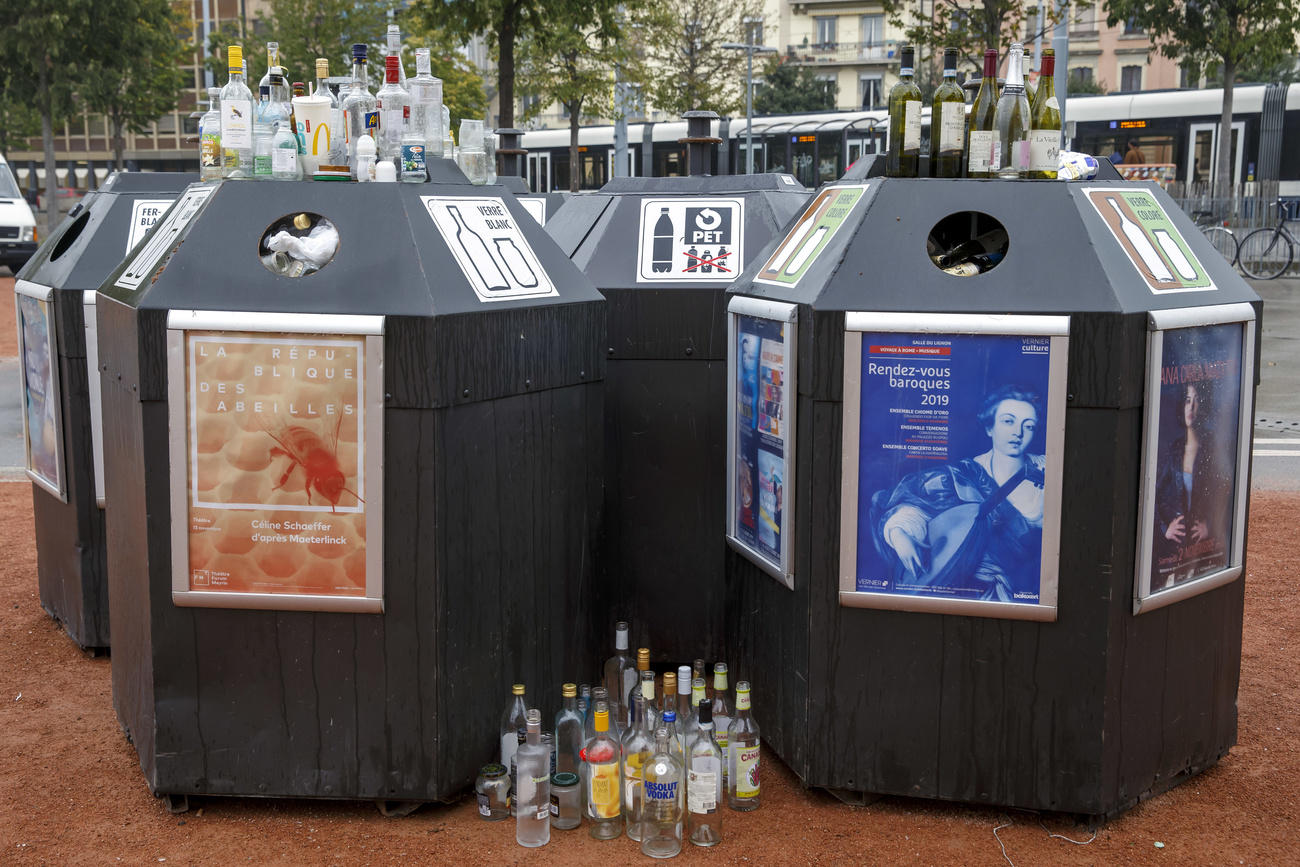
More
How much trash is tossed – and recycled – in Switzerland?
Each year the average Swiss produces around 700kg of rubbish, which the Federal Office for the Environment deems “unsatisfactory”. In Europe, only Denmark, Luxembourg and Sweden produce more waste. Efforts are underway in various countries to reduce waste, such as cutting down on packaging or extending the lifespan of electronic goods. Rubbish inspectors, however, are not among the approaches being explored.
Dealing with growing amounts of waste is a global issue. According to the United Nations, the “global material footprint is increasing faster than population growth and economic output”. One of the UN Sustainable Development Goals is to ensure sustainable consumption and production. Rubbish is the last link in the production chain, and if recycled, it goes back to the beginning of the production cycle.
Recycling works well in Switzerland. Of the 318,709 tonnes of glass bottles used by the population in 2020, 99% were recycled, while 97% of aluminium cans and 82% of PET bottles made it to the recycling bin. More than 50% of all household waste is recycled. Household waste includes the blue bin bags – they end up in the waste incineration plant.

More
Why don’t the Swiss recycle more plastic?
Finding the culprits
At the end of our rubbish inspection tour, we sit in the line of trucks at Basel’s incineration plant and wait for our turn. Our two inspectors have collected around 40 illegally dumped bin bags, which is not that many compared with what the other trucks are carrying.
Suvan and his colleague put on orange overalls and gas masks. Clad in protective gear, they slit open one of the illegally disposed bin bags and rummage through it. If they can’t find evidence of who the bag belongs to, they hurl it onto the conveyor belt that takes it to join the other, legally disposed rubbish bags. Suvan finds a huge range of things: organic waste, mouldy food, glass bottles (which can be recycled free of charge) and a frying pan. The two inspectors stay focused as they rifle swiftly through the dodgy bin bags. Suddenly they stop.
“We’ve found something!” they exclaim and hold up a mail-order catalogue with the name and address of the culprit.
After about 15 minutes’ work, the pair have found the identities of five rubbish offenders. On a good day, they can find three times as many. Before they continue to the office, they throw their disposable protective overalls onto the big rubbish pile to be incinerated with the 800 tonnes of rubbish that end up in the incineration plant every day.

More
Rubbish and recycling
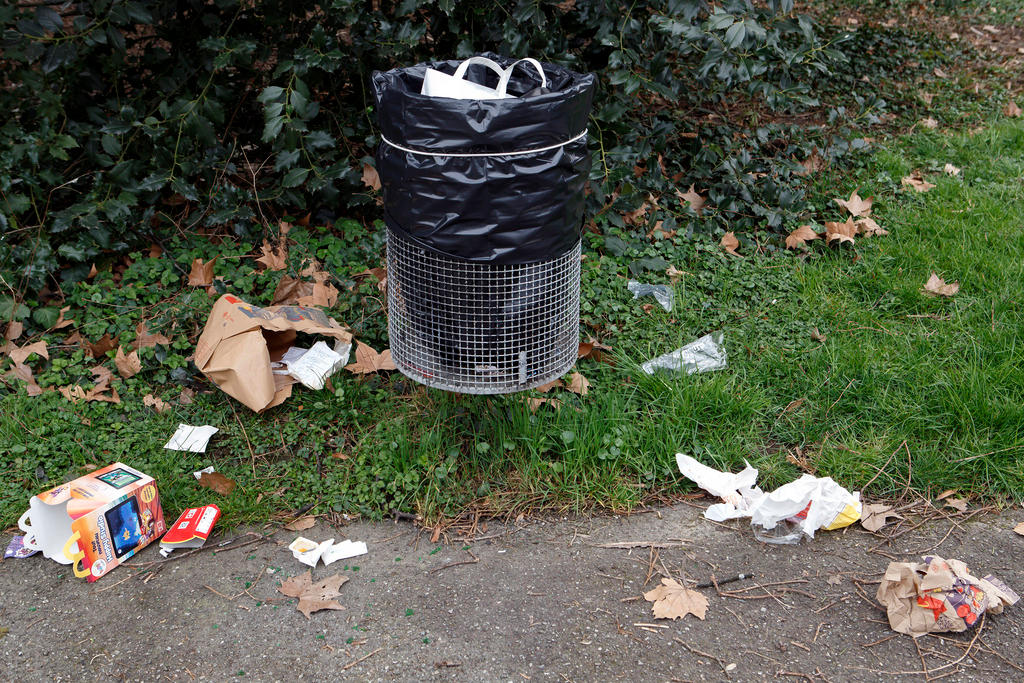
More
What does it take to keep Swiss streets so clean?
Adapted from German by Billi Bierling/Geraldine Wong Sak Hoi

In compliance with the JTI standards
More: SWI swissinfo.ch certified by the Journalism Trust Initiative


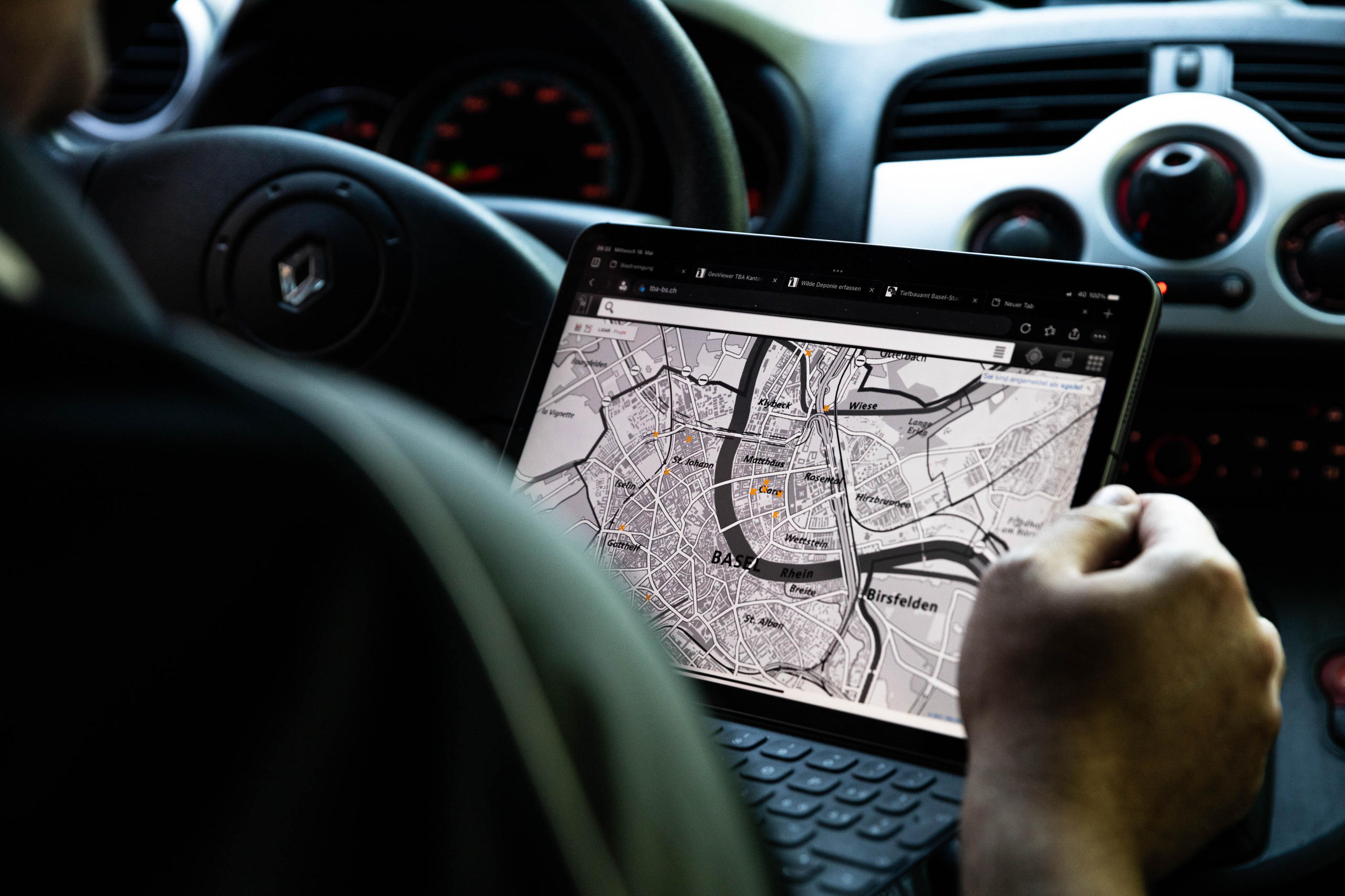









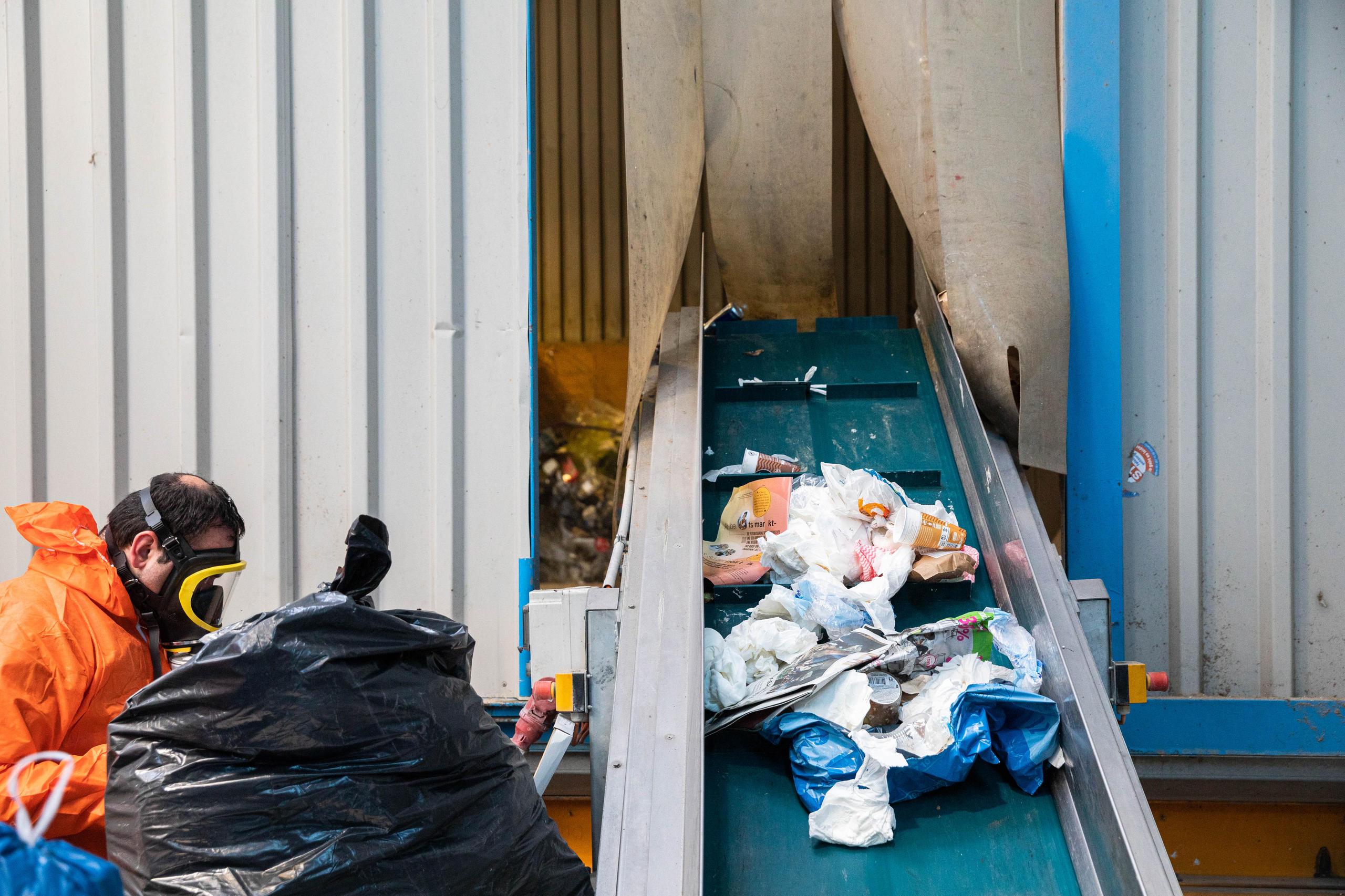




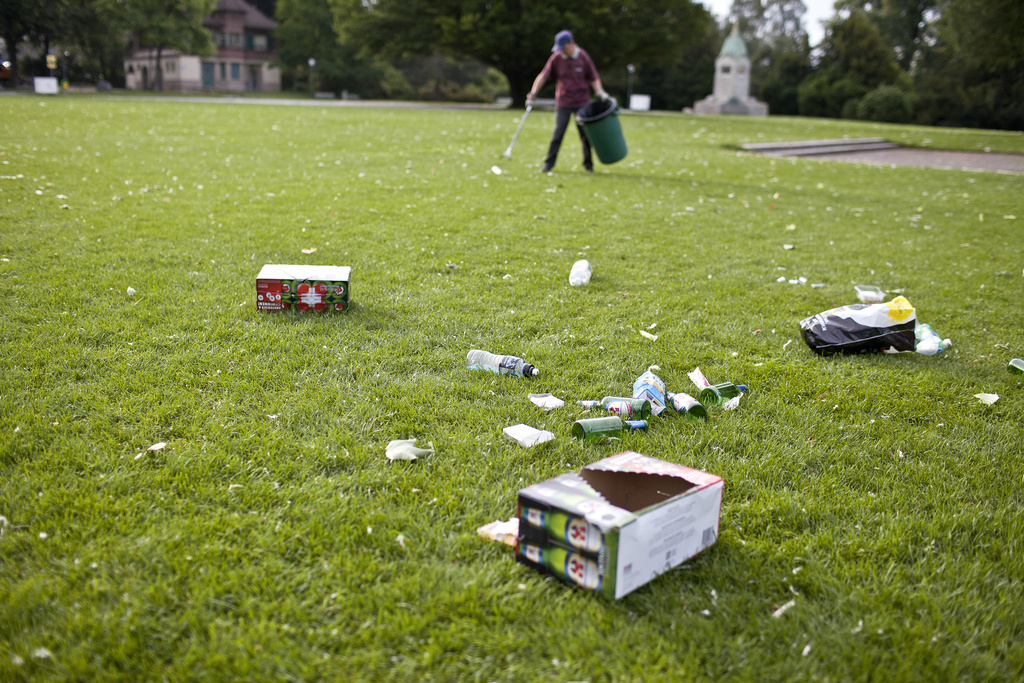
You can find an overview of ongoing debates with our journalists here . Please join us!
If you want to start a conversation about a topic raised in this article or want to report factual errors, email us at english@swissinfo.ch.